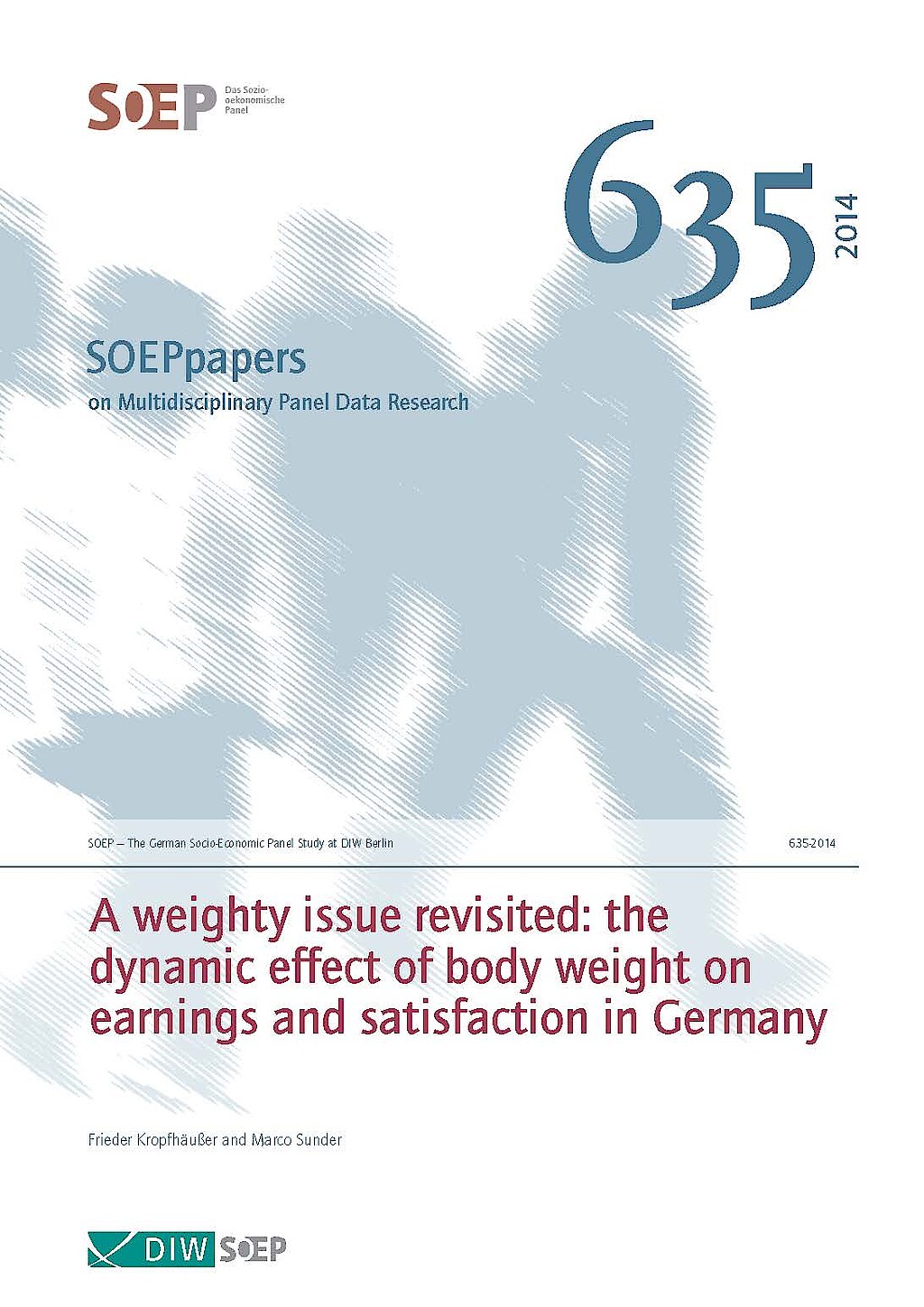
A Weighty Issue Revisited: The Dynamic Effect of Body Weight on Earnings and Satisfaction in Germany
We estimate the relationship between changes in the body mass index (bmi) and wages or satisfaction, respectively, in a panel of German employees. In contrast to previous literature, the dynamic models indicate that there is an inverse u-shaped association between bmi and wages among young workers. Among young male workers, work satisfaction is affected beyond the effect on earnings. Our finding of an implied optimum bmi in the overweight range could indicate that the recent rise in weight does not yet constitute a major limitation to productivity.





